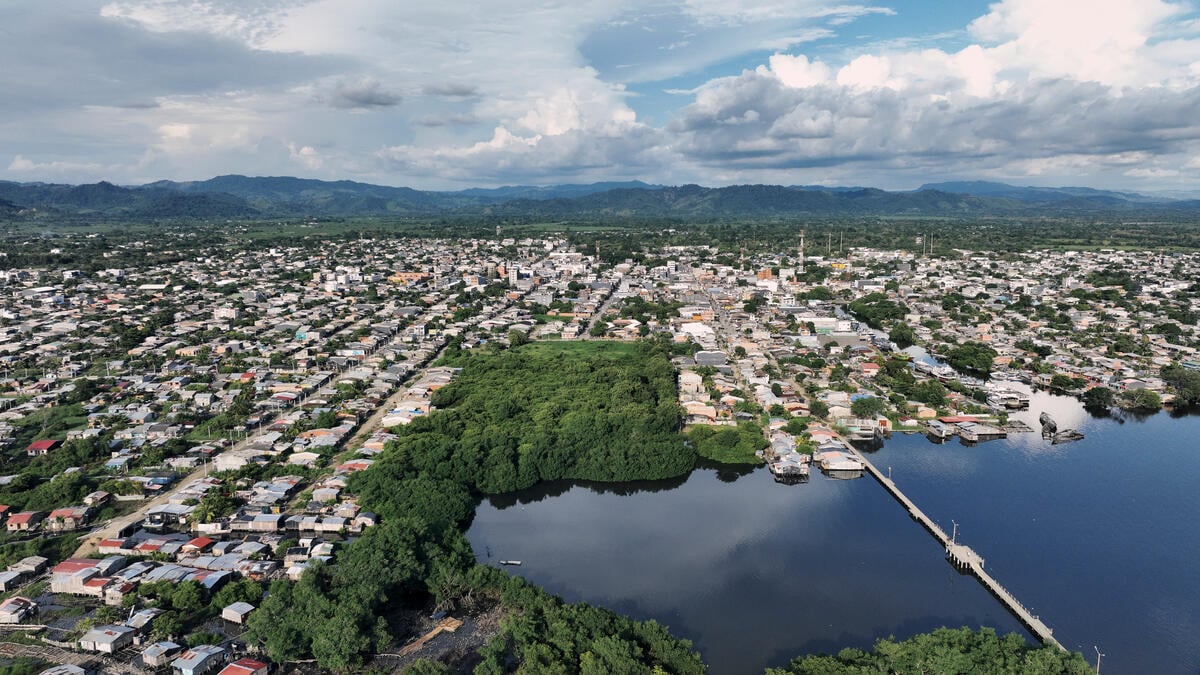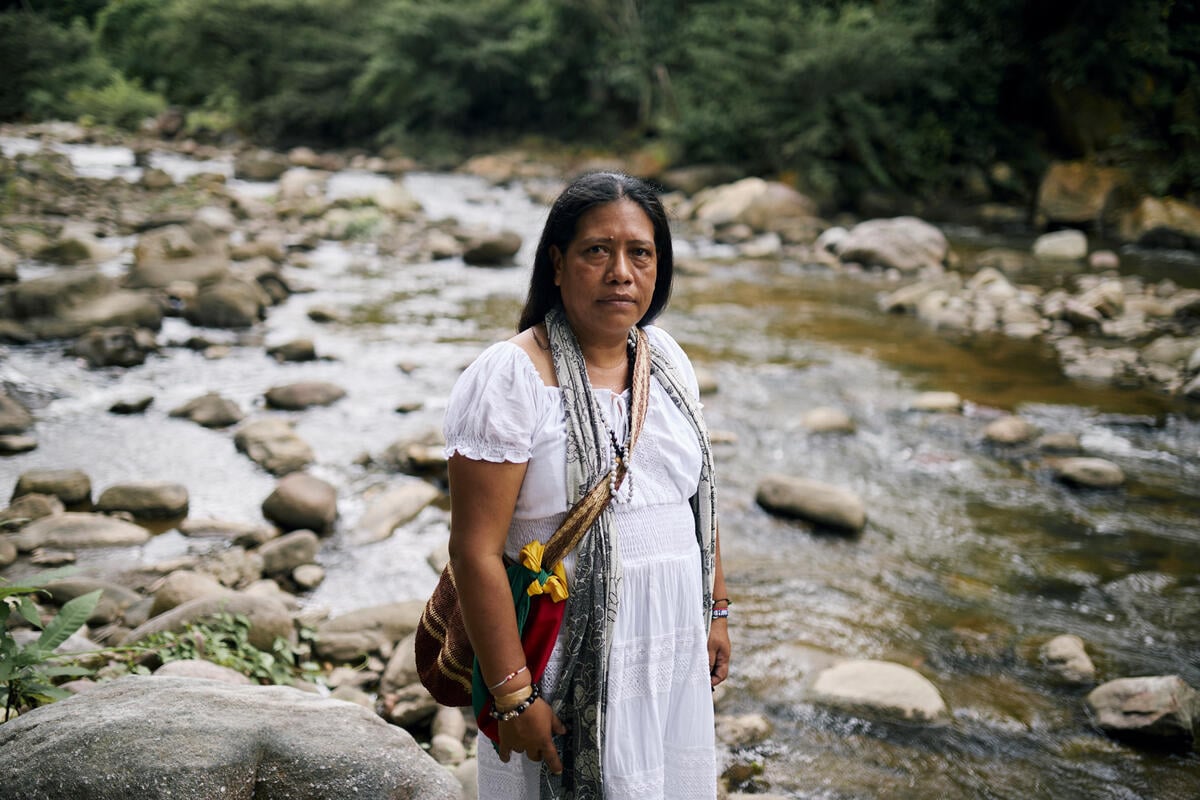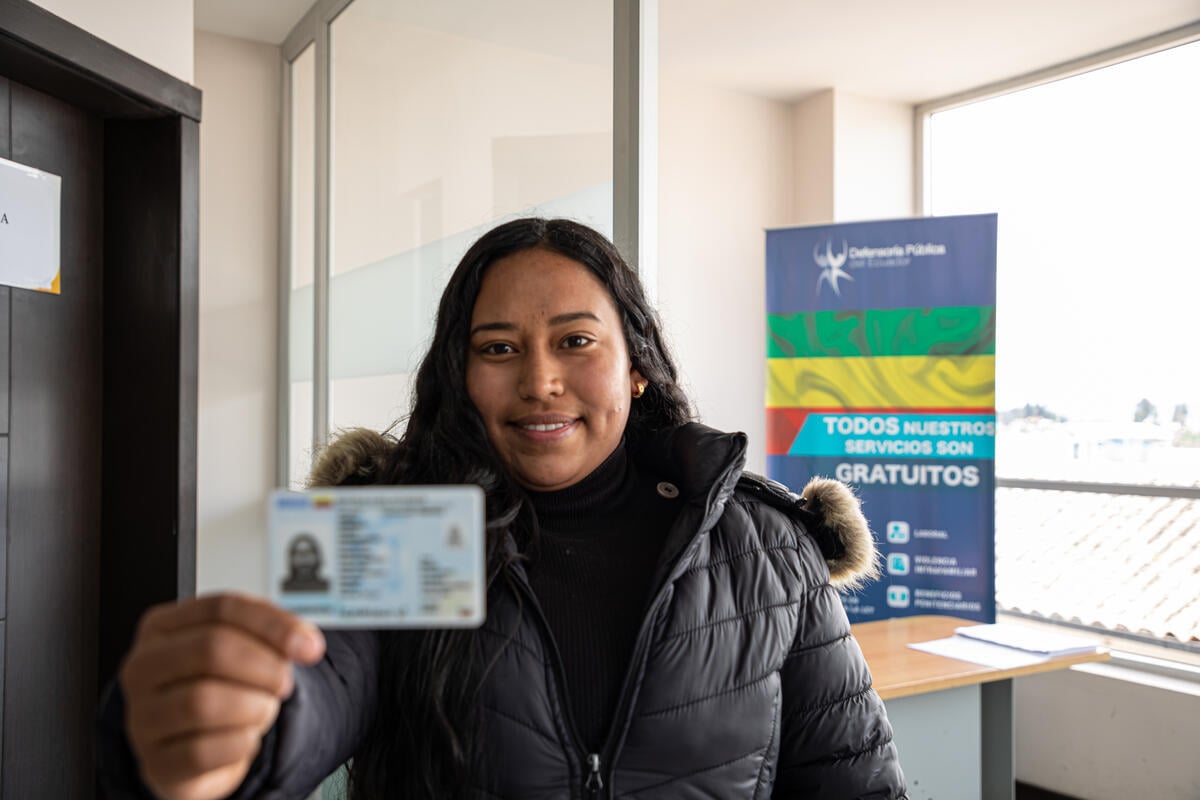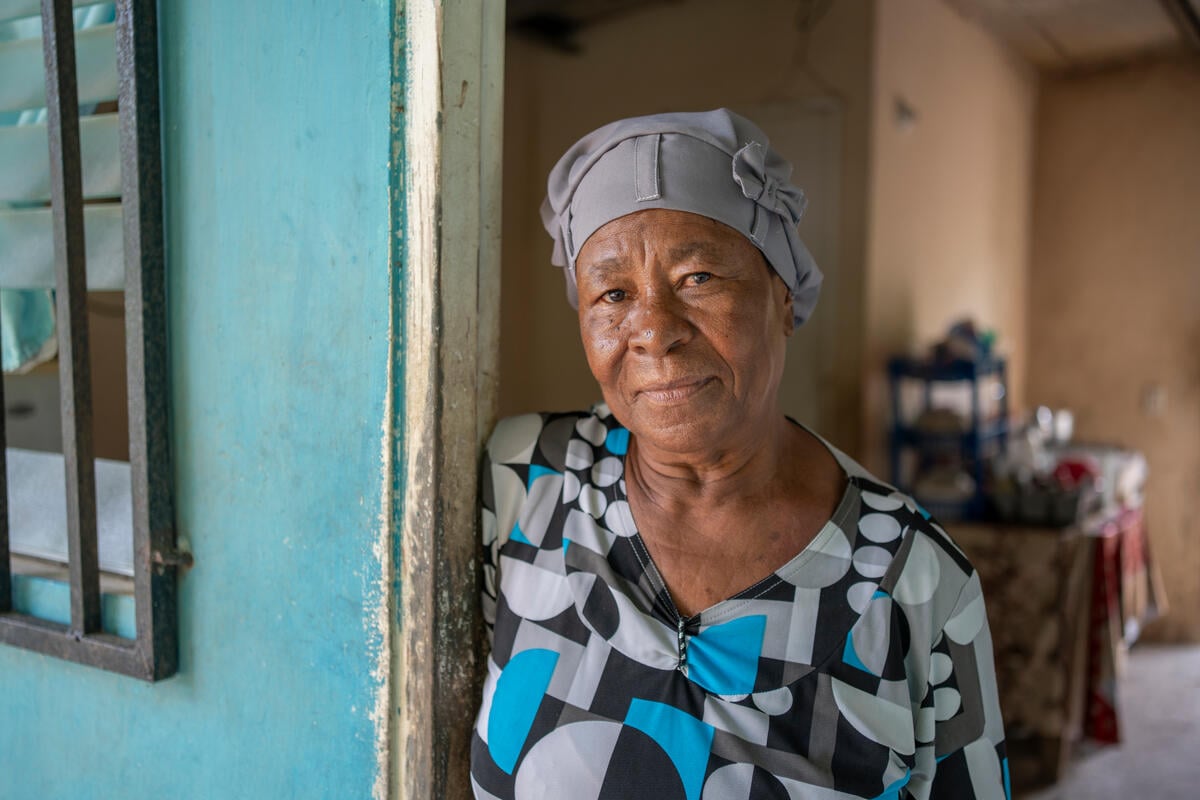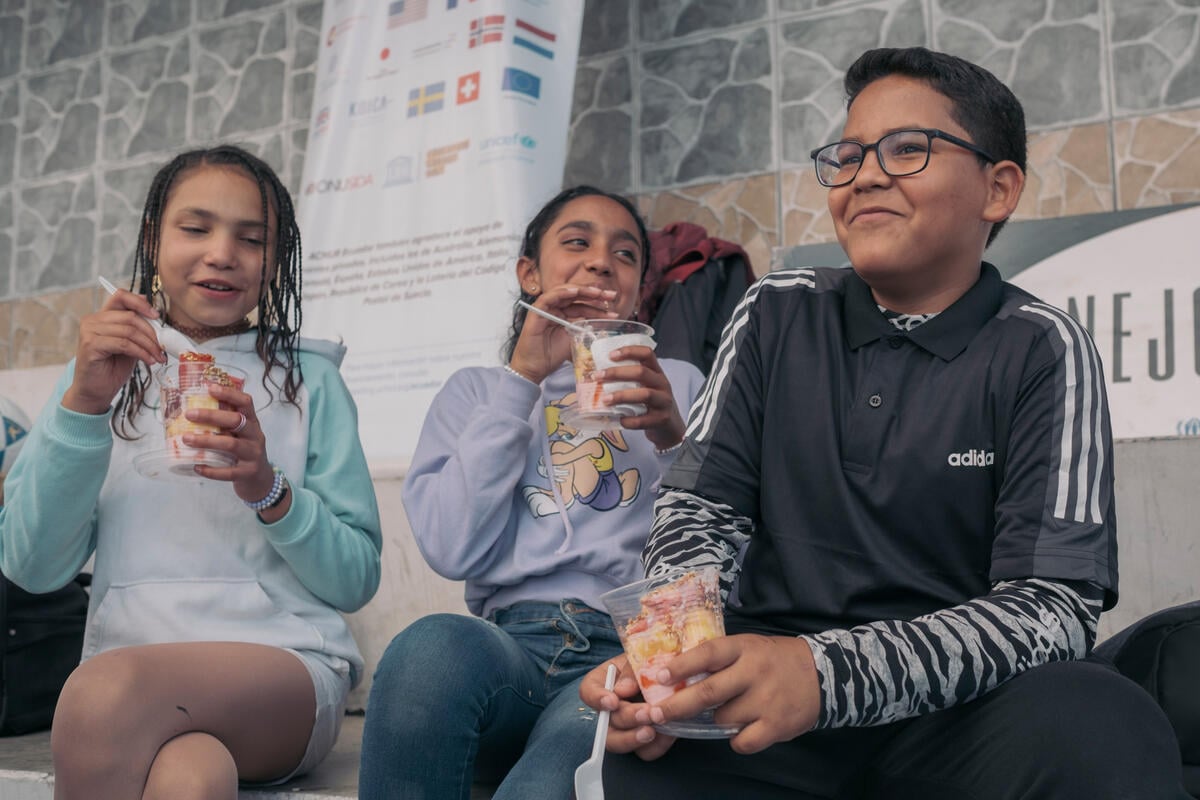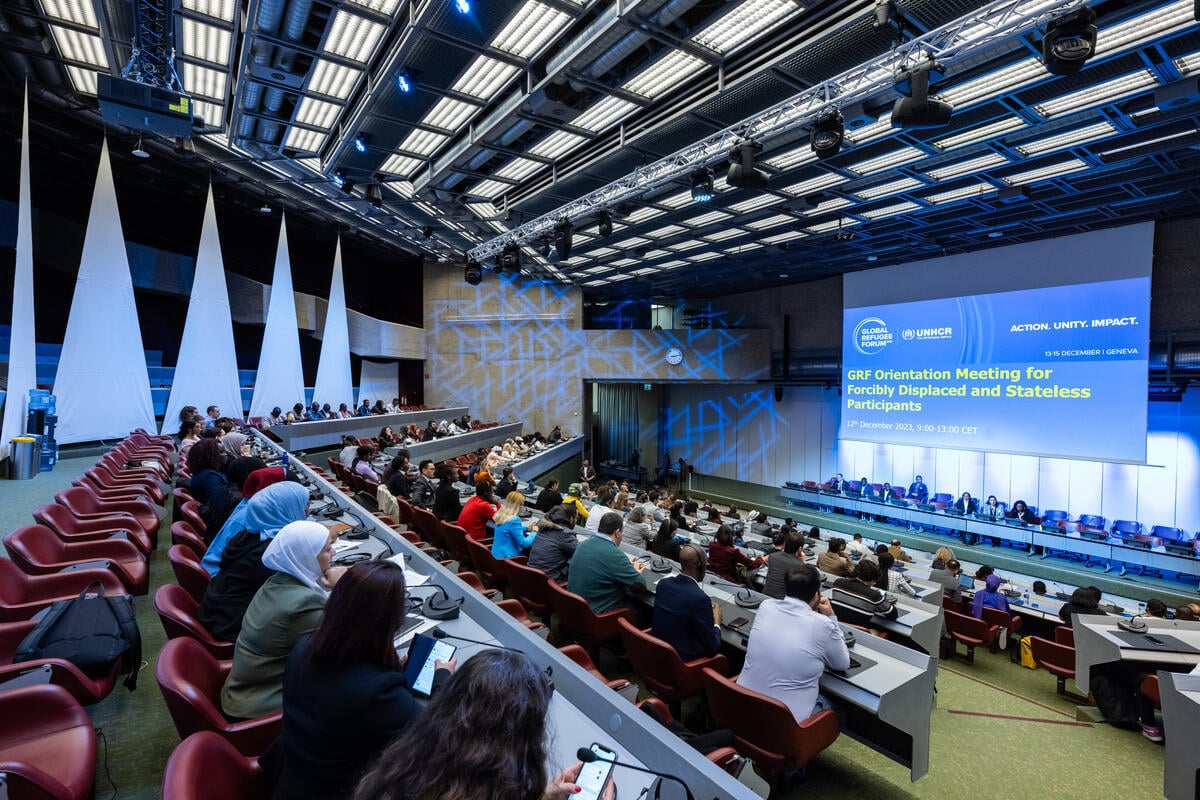UNHCR struggles to reach out to Colombian refugees in Ecuador
UNHCR struggles to reach out to Colombian refugees in Ecuador

PUERTO CARMEN, Ecuador, July 21 (UNHCR) - Pedro spent 10 years fleeing from one region of Colombia to another before giving up his pursuit of peace and security in his homeland and seeking refuge in this small, riverside town in Ecuador.
"It was the same everywhere we went," he remembers, "in Antioquia [in northern Colombia] one group told our entire village to leave and we lost the farm. After that I started truck driving, but in Colombia it is a dangerous job." Truckers were often killed at checkpoints set up to extort money.
Two years ago, after being stopped and severely beaten at a checkpoint in the volatile southern department of Putumayo, 39-year-old Pedro had had enough. "It's time to leave," he remembers thinking, "this is my country, but it has brought me nothing but grief and fear. Nothing good will come out of staying here."
Safety lay a 10-minute boat ride away in Ecuador. Pedro and his wife and three children crossed the San Miguel River and joined a large Colombian community in Puerto Carmen - about half the town's population of 5,000 people is Colombian.
But Pedro, and many others like him, have never registered as refugees or asylum seekers and reaching out to them is proving to be a major challenge for UNHCR. "There might be up to a quarter of a million Colombians in the country who need UNHCR's help, but only about 14,000 are registered with us," says Marta Juárez, the refugee agency's representative in Ecuador.
"We are working with the Ecuadorean government to ensure that people with protection needs get the assistance they are entitled to. But first we must know who they are and our most urgent priority is reaching out to them."
The remoteness of Ecuador's northern border makes that difficult. It takes four hours by car to reach Puerto Carmen from Lago Agrio, where UNHCR has an office. Other communities can only be reached by boat from Puerto Carmen.
Fear and ignorance add to the isolation of those most in need. Colombia is only minutes away and many people are still so scared and traumatised that they will not speak out, even to seek protection. Many do not know that help might be available.
Pedro has never thought of registering as an asylum seeker. He still thinks of himself as a displaced person and has no idea he could be entitled to protection as a refugee - someone who has crossed an international border. Pedro lives in fear that he will one day be sent back to Colombia with his family and he is relieved to learn there might be a way he can regularise his situation in Ecuador.
"There is a very big need for information," says Oscar Butragueño, who heads UNHCR's field office in the region. "People have to know about their rights to be able to rebuild their lives. But there are also some very basic humanitarian needs to be met: food, clean water, health care. Whenever we come, we try to join forces with other organisations in order to address as many of these needs as possible."
On this occasion, the UNHCR team has come with the Ecuadorean Red Cross to distribute food rations from the World Food Programme. The rations are for those most in need among the registered Colombian population and people have been travelling since dawn from distant communities to arrive in time for the distribution.
There are not enough rations for everyone and the only solution is to ask the refugee community itself to decide who most needs the food. The distribution goes smoothly, even though the selection process is such a difficult one - many among the waiting crowd are obviously malnourished. Pedro and his family get nothing - they have a vegetable garden and are not among the neediest
The difficulties are compounded by the fact that the Ecuadorean government has a very small presence in the region and there are few services to alleviate poverty. It is the same on the Colombian side of the river and UNHCR teams are working to address the common needs of people on both banks.
This focus on borders is an integral part of the Mexico Plan of Action, a broad programme promoted by UNHCR to help refugees and displaced people in Latin America. But difficulties of access mean that essential income-generating projects are hard to implement and almost impossible to follow up.

"It is not always easy here, there is not much work and of course Ecuadoreans prefer to give jobs to Ecuadoreans," says Pedro, who has picked up labouring jobs in the past. "Often they think that all Colombians are bad people, violent people. It makes me very sad that my country is so badly thought of, but whose fault is it?"
"It is a beautiful country," he adds, watching the sun set across the river over Colombia. "But after all that has happened, I don't think I will ever find the strength in my heart to go back."
By Marie-Hélène Verney in Puerto Carmen, Ecuador



